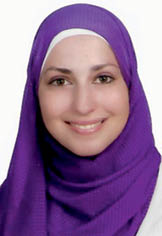
In times of crisis, international development agencies and NGOs tend to turn to humanitarian projects to heal the wounds and fill any gaps that were created. Meanwhile, DROSOS FOUNDATION has positioned itself differently. The foundation stayed true to its distinct sustainability approach, which has made it an internationally renowned ideologically, politically, and religiously independent development partner.
DROSOS FOUNDATION is committed to enabling people to live a life in dignity despite difficult situations. Together with partner organizations, it develops and supports projects that focus on strengthening the life skills of young people by promoting creativity and economic independence. The foundation is active in Switzerland and eastern Germany as well as in Egypt, Jordan, Lebanon, Morocco, Palestine, and Tunisia.
In Palestine, the foundation works on four programmatic priorities: access to employment, online work, creative economies, and agents for change. It pursues three organizational priorities as key drivers to both realize the causal relationships that shape its Theory of Change and inform renovated ways of working. Thus, it employs a multi-stakeholder approach that fosters synergies, collaboration, and partnerships, assesses contributions towards change by applying the MEL (monitoring, evaluation, and learning) system, and supports capacity building to effectively and sustainably inspire and manage change.
Traditionally, funding resources for the civil society sector in Palestine have been limited. Furthermore, with the shifting of priorities of international aid over the last few years, Palestinian NGOs and not-for-profit companies have witnessed increasing challenges in sustaining their programs.
DROSOS FOUNDATION’s strategy for Palestine recognizes that its success is highly dependent on the strength of its partners and their ability to stimulate systematic, favorable change and social value creation. This makes organizational development and the development of skills, tools, systems, and methods crosscutting, key drivers that empower partners in managing change effectively and in a manner that increases their effectiveness, viability, and sustainability. In practice, this means a commitment to a capacity-building model that allows partners to identify and prioritize their own capacity-building agendas; devise mechanisms to address organizational gaps with appropriate interventions for partners, including learning by doing, coaching, mentorships, and peer-learning; build key links with other partners; and embrace the piloting and testing of innovative approaches to achieve transformative change within communities of partners. Our experience shows that although our partners are not born strong, they grow stronger as they encounter difficult situations and learn not to run from them.
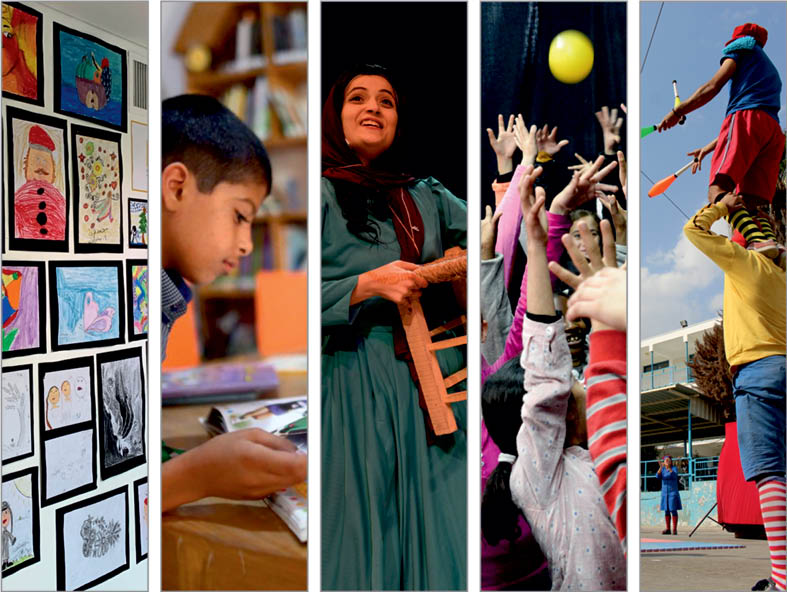
DROSOS FOUNDATION aims to support local partners in their efforts to ensure an adequate level of financial resilience through diversifying income sources and decreasing reliance on donors. This allows them to obtain a more sustainable revenue mix that might include earned income components without affecting the organizations’ identity.
DROSOS FOUNDATION’s wisdom in choosing its partners and their project ideas attests to its reliability. Project development journeys take 6 to 18 months, depending on the maturity of the idea and the partner. In the exploration phase, we look for creative growth-oriented initiatives that form the core mandate of partners and fulfil the vision of DROSOS. We revise and investigate annually around 120 applications. We conduct a lot of research to find interesting organizations. Once an internal decision about a potential partner is reached, several field visits take place to study in greater detail the partner, its staff, organizational culture, beneficiaries, financial capacity, needs, and strategic orientation.
It takes two to tango. Thus, DROSOS Palestine, as a way of encouraging most of our partners to gain some financial independence, challenges them to focus on exploring modalities to generate income. As part of their project interventions, we encouraged partners to sell tickets and artistic services to the private sector and manage any available spaces to implement projects and generate income. This entails raising the capacity and the institutional development of partner organizations so that they enhance the quality of services to attract other donors.
Despite continued political changes and the most recent lockdown due to the COVID-19 pandemic, our strategy proves to be correct and timely in helping our partners survive during this difficult period. In reflecting on emerging challenges, DROSOS FOUNDATION announced the creation of an emergency fund to address the COVID-19 lockdown and its economic implications on our partners.
We convened two online meetings with all our partners to first inquire as to their safety and then to explore their needs and possible challenges. Next, we circulated a questionnaire to document their needs and facilitate our internal assessment. We decided to spend the emergency fund on various aspects, including replacing lost income due to social activities being put on hold, covering partial running expenses to allow future no-cost extension, financing new online work modalities to reach targeted beneficiaries, and supporting activities jointly implemented by our partners. For example, joint collaborations include using drama and theater to raise awareness about gender-based violence, which has significantly increased during the current situation.
We invited a number of our partners to share with TWiP readers how the DROSOS FOUNDATION approach has affected their organizations and programs in the hope that their accomplishments inspire other Palestinian NGOs to follow suit and become increasingly financially independent.
Hebron Youth Development Resource Center
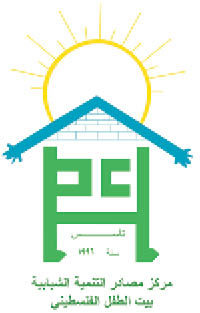
There is almost no place in Hebron where youth can go to learn new skills, enjoy themselves, and socialize at the same time. The Youth Development Resource Center (YDRC) offers a safe and a respectful environment where youth who come from a variety of backgrounds can work together to build their future and have their voices heard. Through providing a variety of interventions such as technology, media, and economic empowerment, the YDRC is now considered one of the main and most-trusted outlets for youth in Hebron.
In 2017, the Hebron YDRC collaborated with DROSOS to establish an innovation space to offer youth a dynamic area where they can build their businesses and collaborate with locals and internationals through multiple means and activities to support entrepreneurship and youth economic independence in the Hebron area. The DROSOS team focused on helping the YDRC before the YDRC offered its support to the community. This unique approach enabled us to share challenges before achievements and talk about risks before opportunities. In fact, the catalyst team at DROSOS Palestine pushed the YDRC to be more creative and passionate in serving youth. The expertise and new experiences that resulted from this journey with Drosos helped us to expand and launch new programs and partnerships in the field of economic empowerment.

Thus, in 2018 and 2019, when the YDRC, like many other organizations in Palestine, faced financial challenges after one of the main donors had stopped aid to Palestinians, the YDRC was in a good position and already working with valuable partners and communities that trust and support what we do. In other words, “The more you can help other people succeed, the more they will want to help you succeed.”
Anas Alsarabta
Program Manager, Hebron Youth Development Resource Center
asarabta@ydrc.ps
Palestinian Circus School
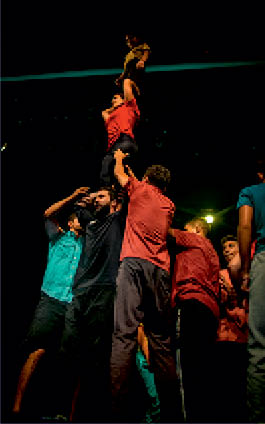
Since 2009, the Palestinian Circus School (PCS) and DROSOS FOUNDATION have built a relationship beyond projects based on results. Both organizations have worked as partners to help the circus scene in Palestine to grow from an enthusiastic initiative to an organization with clear structures, strategies, and programs. The dream continues between the two partners to make PCS a model for cultural and artistic organizations that manages to cover a significant percentage of its financial expenses through income-generating projects that move it towards sustainability. DROSOS has a unique approach to supporting initiatives and organizations: we dream, plan, and assess together. DROSOS FOUNDATION support for PCS is based on a realistic approach and balance between organizational development and the impact on its beneficiaries.
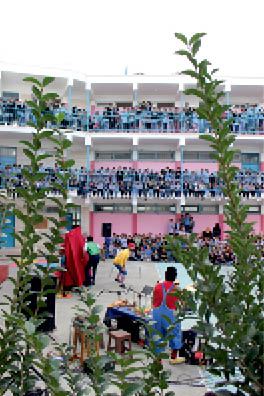
A clear example of this approach is the DROSOS FOUNDATION’s support for the management transition in PCS that took place in 2018 after its founders had decided to leave the organization in 2017. While most other donors would not engage in such a critical process, DROSOS decided to allocate financial and technical support to ensure the smooth transition between the old and new management. Looking back at 2009, we ask ourselves: What if DROSOS FOUNDATION had not been there? What if other donors were to take the same approach with their partners as do DROSOS and PCS?
Mohamad Rabah
Executive Director, Palestinian Circus School
mrabah@palcircus.ps
Art to Heart
As a new nonprofit company that uses a variety of art interventions to enhance the social inclusion of persons with disabilities in Palestine, Art to Heart (A2H) has faced huge challenges since its official inception in 2019. The rigid government policies and conditions towards nonprofit companies have caused ongoing financial and operational risks and major delays in kicking off project activities. The declaration of the emergency situation in Palestine during the COVID-19 crisis in March 2020 put major project activities of A2H on hold. Add to this the challenge of finding accessible premises suitable for the use of physically disabled persons in the city of Nablus. All of this has complicated A2H’s first-year mission. However, the flexibility of DROSOS’s project management approach and the deep understanding of its local Palestinian team regarding the complexity of the local political and socio-economic context has helped in overcoming the above-mentioned challenges and risks.
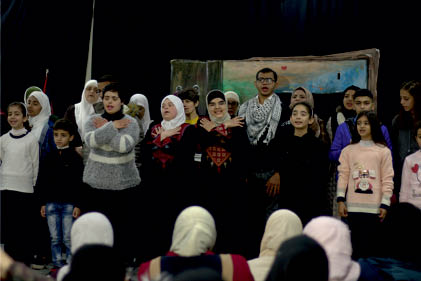
With the understanding and approval of the DROSOS team, A2H managed to re-plan the project budget to meet the costs of refurbishing new accessible premises, making it one of the few accessible community cultural centers in Nablus. DROSOS gave its partners space to think creatively and was prompt in approving A2H’s proposal to shift previously planned face-to face community-based events into online platforms. This resulted in opening new online horizons for the future of the organization, maximizing its audience outreach through social media channels to thousands of viewers instead of the planned 400.
Suha Khuffash
Founder and Managing Director, Art to Heart
suha.sa.khuffash@gmail.com
Bait Byout
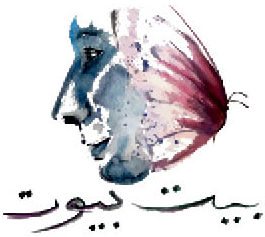
Bait Byout (BB) is a small Palestinian NGO that works in the West Bank to help youth realize their potential and aid their transformation into agents of change by employing a LARP (Live-Action Role Play) game methodology where youth are asked to improvise a role within a given context. BB was established as an initiative of a group of youth LARPers and is entirely governed and operated by youth, giving it an edge in remaining an energetic community built on volunteerism. DROSOS FOUNDATION partnered with BB by focusing on its organizational development to ensure that BB continues to stand on its own feet on solid ground. The relationship goes beyond a donor and local implementing-agency model and can be better described as a mentor/mentee relationship – the older brother who offers guidance with good and honest intentions.

In 2018, the partnership was formulated and legalized in a project that not only allowed BB to set up its administration and financial structure and systems but also strengthen its role in the culture and art ecosystem, widen the beneficiary platform, and test the integration of LARP and gaming methodology into university-level education. The process was interactive and flexible; and when the COVID-19 emergency lockdown started, the foundation continued to work on assisting BB to sustain its operations by providing online training and capacity-building activities and granting the needed extensions to ensure the full implementation of activities.
Afnan Mahmoud
Director, Bait Byout
Afnan.mahmoud@baitbyout.org
Theatre Day Productions
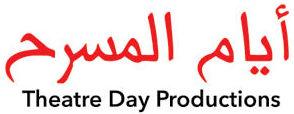
The synergy between Theatre Day Productions (TDP) in Gaza and DROSOS FOUNDATION started in 2019. Together, we have launched a long-term collaboration that utilizes an innovative drama-theater approach to empower Gaza youth and strengthen their role in community development.
The partnership started at a sensitive time for TDP. With its two decades of experience, TDP began a restructuring process in Gaza that resulted in a start-up in 2019, working autonomously from the previous leadership in Jerusalem. With DROSOS, TDP is focused on building management capacities and investing in continued artistic innovation while pursuing financial strength.
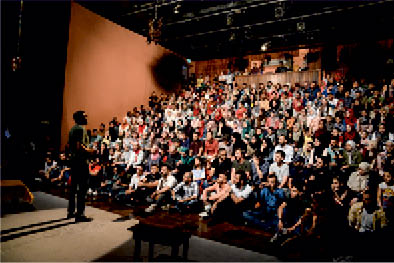
TDP is completely dependent on donors, which poses a huge risk. With DROSOS, TDP took its first practical step towards developing a range of services that can be marketed to private and public sectors, engaging in a series of training sessions that focus on using theater performing techniques to mitigate conflicts and communication challenges. In the coming three years, TDP plans to develop the method and turn it into an income-generation resource.
DROSOS FOUNDATION is making efforts to support its partners during this pandemic by cooperating with those in search of extra funds to bridge a period of slow-pace outputs and outcome, and by relaxing agreed-upon timetables for project outputs. In addition, DROSOS is providing support to cultural organizations. Something that even the government is not able to do. Such support has helped to save jobs in the cultural sector when work had to (temporarily) stop as a result of the coronavirus.
Tania Mourtaja
Executive Director, Theatre Day Productions–Gaza
tania@theatreday.org
Visual Art Forum (VAF)
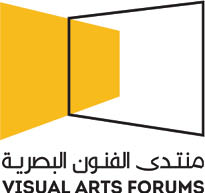
It has become apparent that human capital development is the greatest asset to any organization. Substantial contributions are only achieved with employees who are dedicated to their tasks and deliverables, maintain ownership, uphold the utmost integrity and transparency, and are intent on contributing to the success of others as well as elevating their own potential to new levels.
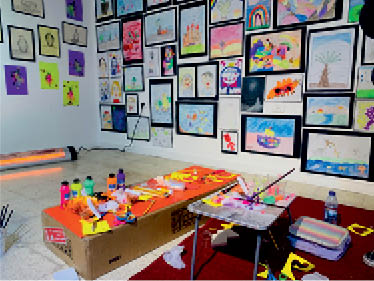
The VAF’s program titled Youth Economic Empowerment through the Arts has magnified DROSOS FOUNDATION’s approach to institutional sustainability and support. Targeting young unemployed artists, social workers, illustrators, and animators, the program will aim to energize, employ, and provide a new outlook in the visual arts sector in Palestine. Complementary to this approach, the project will result in a high-end Digital Lab established at the Palestinian Techno Park in Birzeit, providing a wide spectrum of courses in digital visual arts. The lab will continue to provide its services to the community beyond the project duration, thus contributing to the sustainability of the program’s impact.
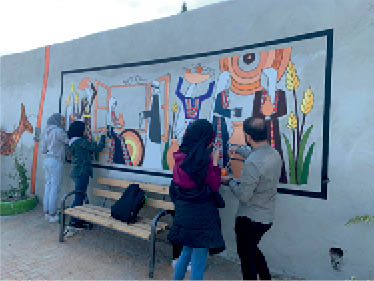
Within the framework of the program and upon its completion, the VAF will be equipped with a new three-year strategic plan, a resource mobilization strategy, and a communication strategy. It is without a doubt that VAF will emerge as a more sustainable, effective, and efficient initiative at the conclusion of this program.
The ongoing global pandemic has highlighted the need to continue the process of investing in the organization’s internal human capital structure as it relates to adapting and finding new tools to implement VAF’s strategic direction and objectives. VAF’s board of directors, management, and team of qualified trainers continue to use their know-how, skills, networking, and newly acquired capacities to continue the process of program implementation in digital-art creativity.
The forum has embraced the challenge of getting back on its feet and using the COVID-19 experience to enhance creativity, respect, and participation in its human capital structure.
Deema Ershaid
Executive Director, Visual Arts Forum
d.ershaid@vaf.ps
NAWA for Culture and Arts Association
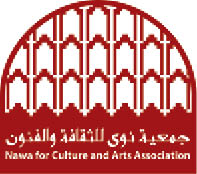
NAWA for Culture and Arts Association is a local NGO established in 2014. We started our ongoing partnership with DROSOS FOUNDATION in 2016. Through this fruitful partnership, DROSOS FOUNDATION stepped in to support our cultural, arts, and educational interventions for the children, families, and educators in the Deir al-Balah area. However, the partnership with DROSOS FOUNDATION is not limited to financial support, important though that be. In the early stages of NAWA, DROSOS supported our needs in developing our management policies and our external financial auditing on the international level, and empowering our team through linking Palestinian and German Waldorf educators to produce together our kindergarten early childhood guidebook.
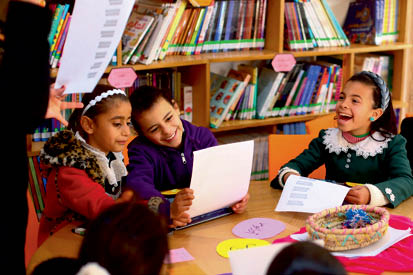
In the Palestinian context, the foundation played a very important role in networking between our organization and Art to Heart in Nablus, another new entity that provides art interventions for children with disabilities, allowing us to share our monitoring and evaluation policy and to cooperate in future interventions. Regular meetings with DROSOS FOUNDATION throughout the COVID-19 crisis furthermore sowed the seeds for increased future cooperation with the Visual Arts Forum in Ramallah.
The partnership with DROSOS is real. Its beauty becomes clear when we share all our gaps, concerns, and strategic development, knowing that they support us and can open doors to the world outside Gaza.
Reem Abu Jaber
Executive Director, NAWA for Culture and Arts Association
reem@nawaculture.org
Al Kasaba Theatre and Cinematheque

When I had the first contact with DROROS, I quickly realized that I was dealing with a different type of donor, a different mentality, which got my attention. I learned that there was a process but never thought that this process would be life-changing for the organization, turning upside down the way we do business.
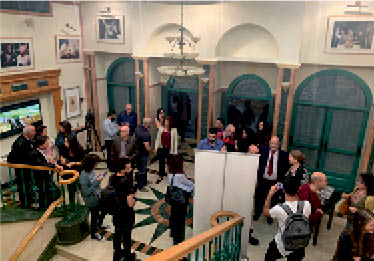
DROSOS FOUNDATION convinced us to use the available space of Al Kasaba and turn it into a cultural incubator in Palestine that serves talented youth who experience the lack of available space to pursue their dreams as one of their biggest challenges. To successfully realize what we as an organization aspire to create, namely financial sustainability, requires a change in approach and thinking. The process of building, planning, and strategizing the project was a revelation that involved all stakeholders, mainly the newly elected board of directors. DROSOS helped shift our mindset and implement a new strategy for Al Kasaba Theatre and the incubator that depends on merging the business mentality with the development and nongovernmental organization mentality while remaining loyal to our values and principles.
Rawan Maraqa
Incubator Manager, Al Kasaba Theatre and Cinematheque
rawan@alkasaba.org
The Wonder Cabinet

The Wonder Cabinet (TWC), founded by Elias and Yousef Anastas, is a hybrid structure that combines industrial production with a flexible, inclusive, and progressive cultural and social platform. The project goal is to give birth to unforeseen knowledge. It aims to provide a space for spontaneous exchange between people from different domains. The hub gathers an ensemble of people and initiatives – all living in one place – and enables them to find ways of sharing and engaging with each other over time. It is a center that encompasses the freedom to imagine the present, the past, and the future by building on inherited cultural layers. TWC curates various types of activities alongside its industrial production. The space is used as an adaptable platform for several cultural and educational initiatives.
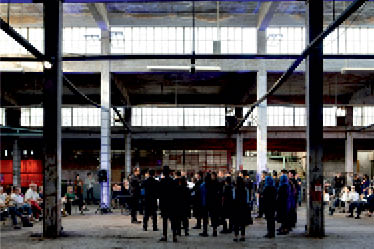
DROSOS is TWC’s main partner. For almost two years, the team of DROSOS in Ramallah has accompanied the project’s formation, working with the TWC team to define its main goals. During this period, intensive exchanges took place to elaborate on a key element of the project: sustainability. Before committing to be the main partner and contributor to the project, the DROSOS team defined all the efforts and infrastructure necessary to build a safe, strong vision for the mid- and long-term sustainability of the project. The challenges were tackled by identifying the needs of the target audience with the help of a professional team of consultants who studied in depth the project’s structure and income-generating components.
Elias & Yousef Anastas
The Wonder Cabinet
info@localindustries.org
The Mountain
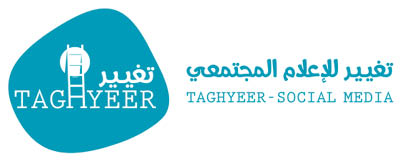
Hosted by Taghyeer for Social Media, the Mountain is an incubator for start-ups and a center for the design of entrepreneurial ideas and projects that is situated out in nature among three Palestinian villages: Ras Karkar, Kafr Ni’ma, and Deir Ibzi. The project provides a safe space for expression, contemplation, relaxation, and mindfulness as well as for individual and collective work with entrepreneurs (men and women), enabling them to explore their passion through the analysis of their childhood memories and linking them to their current life context. Ultimately, the Mountain aims to translate these memories, dreams, and emotions into economic, social, cultural, and artistic projects that make a sustainable and ongoing socio-economic impact.
This new form of partnership between a local and an international organization, namely Taghyeer and DROSOS, employs a nontraditional work methodology that is rooted in the authenticity and lifestyle of the Palestinian people. It is characterized by mutual respect and shared values between the partners, such as transparency and clarity, as well as the deep emotional understanding of the nature of each country, organization, and idea.
As a result of this relationship, the Mountain, in less than a year, has started to develop not only ideas regarding financial sustainability but also a financial feasibility study that includes, inter alia, establishing the Mountain Kitchen, the Mountain Visual Studio, and the Mountain site for educational materials on entrepreneurship, planned to open in 2020–2021, as well as other profit-making ideas. It will also allow the Mountain to generate income through renting to local and international organizations venues that include its training facility and its space for meditation. Such ideas serve the entire project in the short and long terms, enabling the project to continue to work, grow, and flourish.
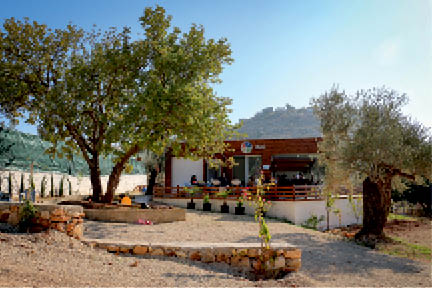
Our model is known as the social business model, and we are currently developing it from a legal and regulatory point of view in partnership with the Palestinian Ministry of Entrepreneurship and Empowerment and the Ministry of National Economy since we believe that small and medium enterprises are the type of businesses that are capable of building a national liberation-oriented Palestinian economy.
Saed Karzoun
CEO, Taghyeer for Social Media
saed.karzoun@taghyeer.ps
Women’s Center for Legal Aid and Counselling
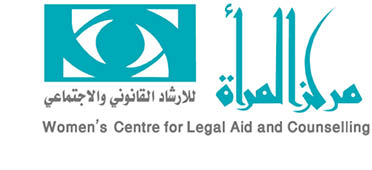
With the support of DROSOS FOUNDATION, the Women’s Center for Legal Aid and Counselling (WCLAC) has managed to provide socio-legal protection to women victims of gender-based violence (GBV) in remote, marginalized, and underserved communities. Through building the capacities of community-based organizations (CBOs), services were not only institutionalized in the work of these CBOs but also created local entities for community mobilization and the promotion of women’s rights.
DROSOS provided support to the capacity building and institutionalization of four CBOs in Tubas, Tulkarem, Jericho, and Hebron that help women victims of violence access justice and obtain their rights. WCLAC has also managed to reach out to the most marginalized communities through mobile legal clinics and awareness-raising and community-mobilization activities that aim to increase women’s access to their social and legal rights, create local male and female champions of change, and raise awareness among community members of women’s and human rights. During the COVID-19 lockdown, DROSOS FOUNDATION provided additional funds to support the CBOs in giving support to women victims of GBV.
Through its participatory approach, DROSOS FOUNDATION has always advocated joint programs and the formation of partnerships between local partner institutions, not only to exchange knowledge and experience but also to consolidate efforts by developing responsive interventions. During the pandemic, WCLAC and Al Kasaba Theatre and Cinematheque explored the creation of a partnership to raise awareness of GBV and women’s and human rights by using art and theater. An emergency response fund introduced by DROSOS FOUNDATION will continue to support the two partners in disseminating messages on GBV through social and mainstream media, reaching out to the general public in Palestine.
Amal Abusrour
Director of Programs, WCLAC
aabusrour@wclac.org

